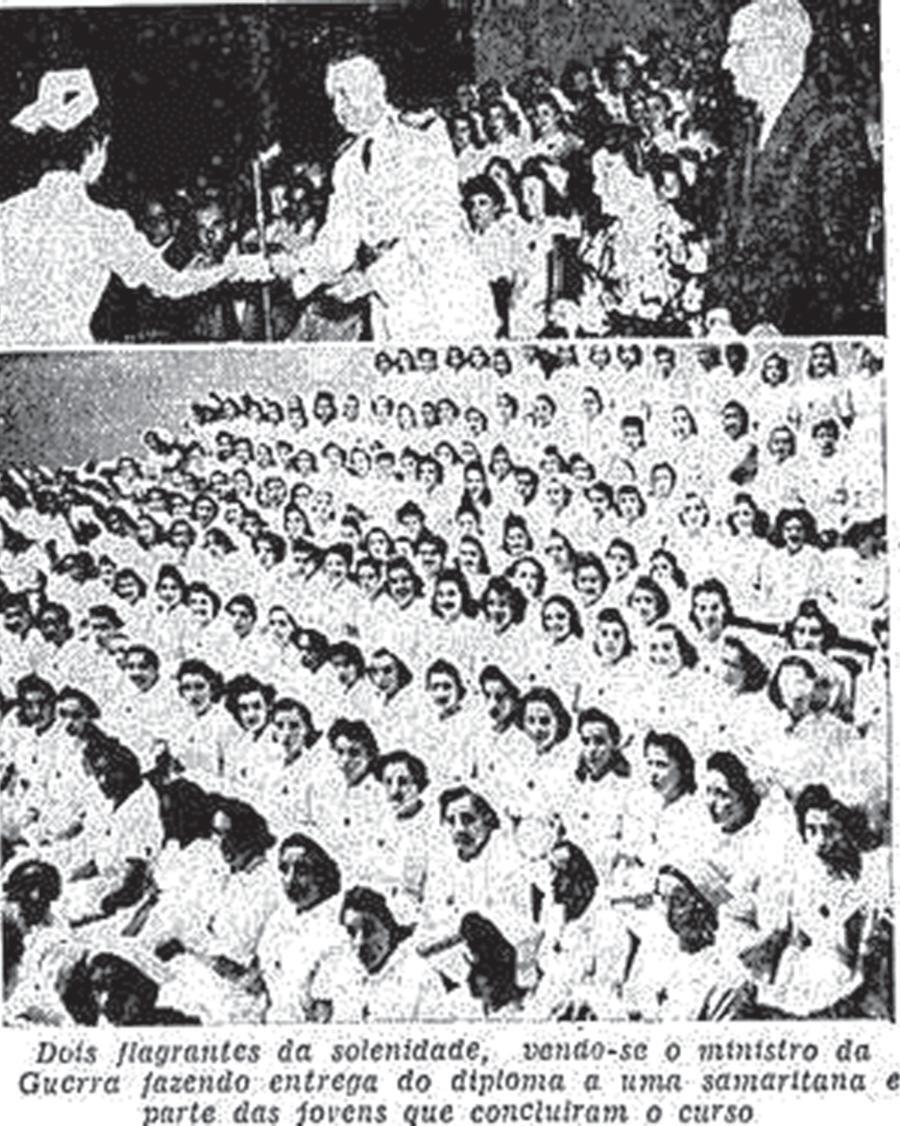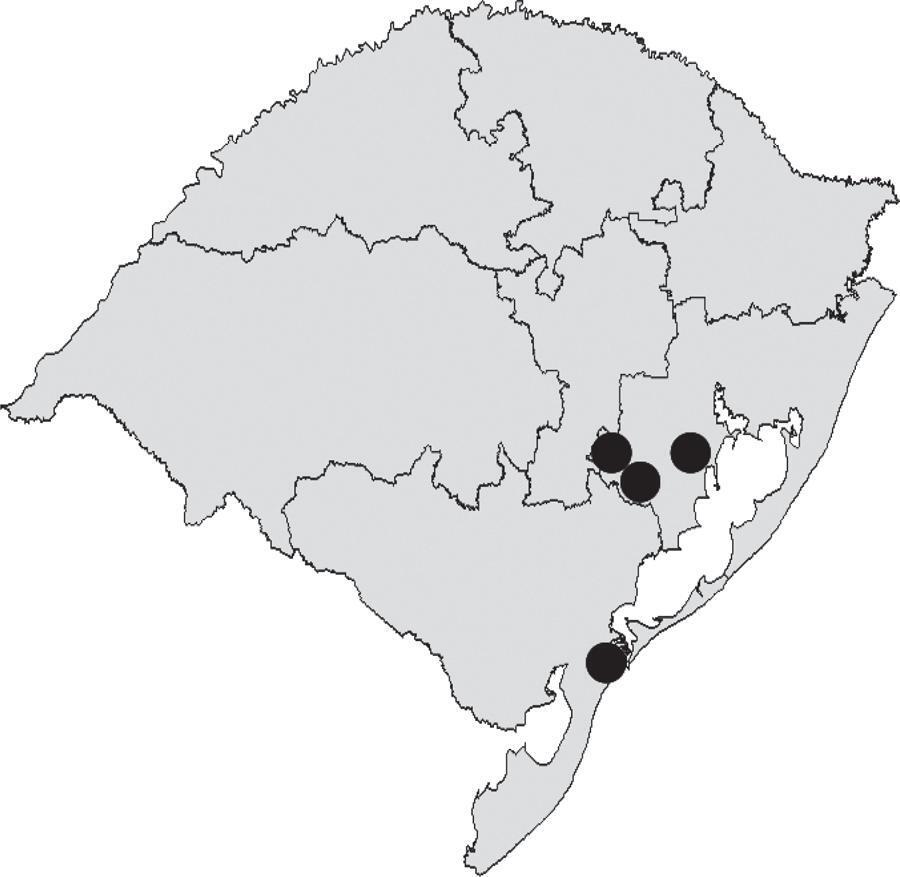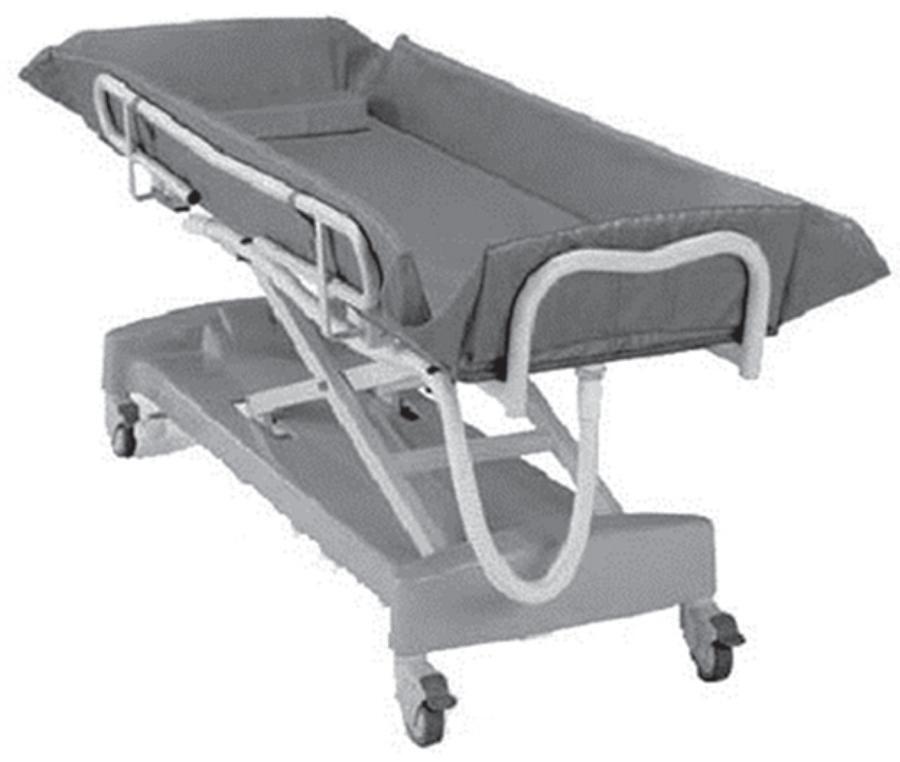-
REVIEW01-01-2017
Patient with stroke: hospital discharge planning, functionality and quality of life
Revista Brasileira de Enfermagem. 2017;70(2):415-423
Abstract
REVIEWPatient with stroke: hospital discharge planning, functionality and quality of life
Revista Brasileira de Enfermagem. 2017;70(2):415-423
DOI 10.1590/0034-7167-2016-0166
Views0See moreABSTRACT
Objective:
analyze the strategies of hospital discharge planning for these patients, increasing the knowledge related to hospitalhome transition, discharge planning processes and the main impact on the quality of life and functionality.
Method:
integrative literature review using the PICOD criteria, with database research.
Results:
19 articles were obtained, using several approaches and contexts. For quality of life, the factors related to the patient satisfaction with care and the psychoemotional aspects linked with functionality are the most significant.
Conclusion:
during the hospitalization period, a careful hospital discharge planning and comprehensive care to patients and caregivers – in particular the functional and psychoemotional aspects – tend to have an impact on the quality of life of patients.

-
RESEARCH01-01-2017
Nursing throughout war times: political propaganda and professional valorization (1942-1945)
Revista Brasileira de Enfermagem. 2017;70(2):407-414
Abstract
RESEARCHNursing throughout war times: political propaganda and professional valorization (1942-1945)
Revista Brasileira de Enfermagem. 2017;70(2):407-414
DOI 10.1590/0034-7167-2016-0440
Views0See moreABSTRACT
Objective:
to discuss the symbolic effects of the publication on written press of institutional rites related to the courses promoted by the Brazilian Federal District’s Schools of Nursing during the Second World War.
Method:
exploratory and documentary study, whose sources were treated by historical method.
Results:
one noticed, in the news reports analyzed, that the Brazilian Estado Novo has used nurses images to divulge within the society the woman’s acting altruistic model in service to the country, through the systematic diffusion by the press of her honorable acting during the war, what assured the amplification of the visibility and acknowledgment of the Nursing profession in that context.
Conclusion:
the diffusion by press of emergency nurses graduations magnified their apparition in public spaces, occasion on which the institutional rite was strategically used to transmit to the society the urgency of the new profession, in order to support the political causes in vigor in the country.

-
RESEARCH01-01-2017
Conformity of nurse prescribing to care needs: nurses’ understanding
Revista Brasileira de Enfermagem. 2017;70(2):400-406
Abstract
RESEARCHConformity of nurse prescribing to care needs: nurses’ understanding
Revista Brasileira de Enfermagem. 2017;70(2):400-406
DOI 10.1590/0034-7167-2016-0107
Views0See moreABSTRACT
Objective:
investigate the understanding of nurses on nurse prescribing conformity to the care needs of hospitalized patients and factors associated with that conformity.
Method:
a descriptive study, with a quantitative approach, was conducted at 20 in-patient units of a teaching hospital in the state of São Paulo. The participants (N=139) answered a semi-structured questionnaire.
Results:
For 43 (30.9%) nurses, nurse prescribing is always in line with patients’ care needs. The fields of body care and elimination, skin and mucosa care and investigation and monitoring were the most frequently addressed.
Conclusion:
in the perception of most nurses, nurse prescribing does not conform with patients’ health heeds. The establishment of strategies to improve prescribing quality is recommended, as well as the development of permanent qualification programs and the systematic use of instruments for assessment of patients’ care demands regarding nursing.
-
RESEARCH01-01-2017
Religious and spiritual coping in people living with HIV/Aids
Revista Brasileira de Enfermagem. 2017;70(2):392-399
Abstract
RESEARCHReligious and spiritual coping in people living with HIV/Aids
Revista Brasileira de Enfermagem. 2017;70(2):392-399
DOI 10.1590/0034-7167-2015-0170
Views0See moreABSTRACT
Objective:
evaluate the religiosity and the religious/spiritual coping of people living with HIV/Aids.
Method:
descriptive, cross-sectional study with quantitative approach, conducted in a reference HIV/Aids outpatient clinic in a university hospital of Recife-PE, Brazil, from June to November 2015. At total of 52 people living with HIV/Aids (PLWHA) participated in the research, which employed own questionnaire, the Duke University Religion Index (DUREL), and the Religious/Spiritual Coping Scale (RCOPE).
Results:
the sample presented high indices of organizational religiosity (4.23±1.66), non-organizational religiosity (4.63±1.50), and intrinsic religiosity (13.13±2.84). Positive RCOPE was used in high mean scores (3.66±0.88), and negative RCOPE had low use (2.12 ± 0.74). In total, use of RCOPE was high (3.77±0.74), having predominated the positive RCOPE (NegRCOPE/PosRCOPE ratio=0.65±0.46).
Conclusion:
it is evident the importance of encouraging religious activity and RCOPE strategies, seen in the past as inappropriate interventions in clinical practice.
-
RESEARCH01-01-2017
Satisfaction and dissatisfaction in the work of recyclable solid waste segregators: convergent-care research
Revista Brasileira de Enfermagem. 2017;70(2):384-391
Abstract
RESEARCHSatisfaction and dissatisfaction in the work of recyclable solid waste segregators: convergent-care research
Revista Brasileira de Enfermagem. 2017;70(2):384-391
DOI 10.1590/0034-7167-2016-0325
Views0See moreABSTRACT
Objectives:
describe elements that promote satisfaction and dissatisfaction in the work of recyclable solid waste segregators and conduct a nursing action focused on these elements.
Method:
qualitative research, convergent-care, conducted with members of the cooperative. Data production occurred during 2015 through participation observation, semi-structured interviews, and a convergence group. Analysis comprised the phases Apprehension, Synthesis, Theorization, and Transference.
Results:
four categories emerged. They showed satisfaction and dissatisfaction related to identification with tasks and work content, material and personal gains obtained from solid waste segregation, prejudice, lack of appreciation, and difficulties in interpersonal relationships. This last item, due to its importance, received a nursing action.
Conclusion:
the study contributed to the advancement of knowledge and the association of possibilities between the research performance and nursing care for workers.
-
RESEARCH01-01-2017
The game as strategy for approach to sexuality with adolescents: theoretical-methodological reflections
Revista Brasileira de Enfermagem. 2017;70(2):376-383
Abstract
RESEARCHThe game as strategy for approach to sexuality with adolescents: theoretical-methodological reflections
Revista Brasileira de Enfermagem. 2017;70(2):376-383
DOI 10.1590/0034-7167-2016-0043
Views0See moreABSTRACT
Objective:
To describe the Papo Reto [Straight Talk] game and reflect on its theoretical-methodological basis.
Method:
Analytical study on the process of elaboration of the Papo Reto online game, destined to adolescents aged 15-18 years, with access to the Game between 2014 and 2015.
Results:
the interactions of 60 adolescents from Belo Horizonte and São Paulo constituted examples of the potentialities of the Game to favor the approach to sexuality with adolescents through simulation of reality, invention and interaction. Based on those potentialities, four thinking categories were discussed: the game as pedagogic device; the game as simulation of realities; the game as device for inventive learning; and the game empowering the interaction.
Conclusion:
By permitting that the adolescents take risks on new ways, the Game allows them to become creative and active in the production of senses, in the creation of their discourses and in the ways of thinking, feeling and acting in the sexuality field.
-
RESEARCH01-01-2017
Tuberculosis among prison staff in Rio Grande do Sul
Revista Brasileira de Enfermagem. 2017;70(2):370-375
Abstract
RESEARCHTuberculosis among prison staff in Rio Grande do Sul
Revista Brasileira de Enfermagem. 2017;70(2):370-375
DOI 10.1590/0034-7167-2016-0012
Views0See moreABSTRACT
Objective:
to evaluate the risk of infection and illness caused by Mycobacterium tuberculosis among health care and security staff in prisons in two regions of Rio Grande do Sul (RS).
Method:
cross-sectional study involving prison staff. An interview and sputum smear microscopy and culture were performed. Latent infection was evaluated according to the result of the tuberculin test (TT), self-referred.
Results:
among staff who had a TT, 10 (83.3%) in the central region and 2 (16.7%) in the southern region were considered reactors. Length of employment among prison officers who reacted to TT was 15.3 years, and among health care workers, 4.1 years (p = 0.01). No cases of active tuberculosis (TB) were identified.
Conclusion:
prevalence of latent TB was 27.9%. Length of employment between different professional categories and their working regions was considered a risk factor for latent TB.

-
RESEARCH01-01-2017
Portable bathtub: technology for bed bath in bedridden patients
Revista Brasileira de Enfermagem. 2017;70(2):364-369
Abstract
RESEARCHPortable bathtub: technology for bed bath in bedridden patients
Revista Brasileira de Enfermagem. 2017;70(2):364-369
DOI 10.1590/0034-7167-2016-0178
Views0See moreABSTRACT
Objective:
determine the benefits of the Portable Bathtub as technology for bed bath in bedridden patients.
Method:
qualitative research of exploratory-descriptive character, whose data were collected by means of 30 interviews with patients, family members and professionals directly involved in bed bath, carried out with Portable Bathtub, in bedridden patients of a medical clinic, from July to December 2015.
Results:
from the data encoded by thematic content analysis resulted two categories: Portable Bathtub: from morphine to the patient’s rekindled eyes; From mechanized practice to unique, transforming care.
Conclusion:
we concluded that the Portable Bathtub constitutes enhancing technology, as it enables clinical improvement of the patient’s general condition and transcends traditional mechanized practices by the reach of advanced nursing care practices.

-
EXPERIENCE REPORT10-26-2020
Brazilian Nursing Process Research Network contributions for assistance in the COVID-19 pandemic
Revista Brasileira de Enfermagem. 2020;73:e20200798
Abstract
EXPERIENCE REPORTBrazilian Nursing Process Research Network contributions for assistance in the COVID-19 pandemic
Revista Brasileira de Enfermagem. 2020;73:e20200798
DOI 10.1590/0034-7167-2020-0798
Views0See moreABSTRACT
Objective:
to describe the theoretical construction process of nursing process support documents in COVID-19 care scenarios.
Methods:
an experience report of the joint activity of the Brazilian Nursing Process Research Network (Rede de Pesquisa em Processo de Enfermagem) composed of Higher Education and Health Institution researchers in Brazil.
Results:
five instruments were organized collectively, involving the elements of nursing practice (nursing diagnoses, outcomes and interventions) in assistance for community; for patients (with suspected or mild, moderate, and critical COVID-19 and residents in Nursing Homes); for nursing workers’ health support, also subsidizing registration and documentation during the COVID-19 pandemic.
Final considerations:
valuing the phenomena manifested by families/communities, patients and health professionals is essential for early detection, intervention, and prevention of diseases.
-
11-13-2020
Fear of childbirth in time of the new coronavirus pandemic
Revista Brasileira de Enfermagem. 2020;73:e20200551
Abstract
Fear of childbirth in time of the new coronavirus pandemic
Revista Brasileira de Enfermagem. 2020;73:e20200551
DOI 10.1590/0034-7167-2020-0551
Views0See moreABSTRACT
Objective:
Reflect on how the new coronavirus pandemic triggered or accentuated the fear of childbirth in pregnant women and affected childbirth care practices.
Methods:
Reflective analysis of women’s pregnancy and childbirth experiences during the current pandemic, supported by the latest scientific evidence and recommendations on the topic.
Results:
Pregnancy and childbirth are life-changing events for women, but during the new coronavirus pandemic, fear and uncertainty have taken on an unprecedented dimension in the negative way that many pregnant women have anticipated and experienced childbirth.
Final considerations:
The current period has accentuated a chronic problem: a paternalistic system of health institutions in the approach to childbirth, dense with additional levels of fear in pregnant women. In this context, addressing the fear of childbirth means not giving up the promotion of safe and positive birth experiences for women.

-
09-16-2019
Socioeconomic factors related to leprosy: an integrative literature review
Revista Brasileira de Enfermagem. 2019;72(5):1405-1415
Abstract
Socioeconomic factors related to leprosy: an integrative literature review
Revista Brasileira de Enfermagem. 2019;72(5):1405-1415
DOI 10.1590/0034-7167-2017-0651
Views0See moreABSTRACT
Objective:
To investigate in the literature the relation of socioeconomic factors in the incidence of the disease and other outcomes related to leprosy.
Method:
Integrative review conducted in Lilacs, Medline, Scopus databases and SciELO online library with studies from 2000 to 2016.
Results:
32 studies were included. Only studies that analyzed statistical associations of socioeconomic factors and outcomes related to leprosy were selected.
Conclusion:
Leprosy is greatly affected by the social context in which the patient is inserted, the chances of exposure to illness are the result of a set of not only individual aspects, but also of contexts or collective conditions. It is imperative for Nursing, as an essential part of the multiprofessional team entrusted with the care and surveillance of the disease, to recognize these factors to predict unfavorable outcomes and to develop new practices capable of reducing inequities.

-
ORIGINAL ARTICLE06-27-2019
Literacy in health and self-care in people with type 2 diabetes mellitus
Revista Brasileira de Enfermagem. 2019;72(3):700-706
Abstract
ORIGINAL ARTICLELiteracy in health and self-care in people with type 2 diabetes mellitus
Revista Brasileira de Enfermagem. 2019;72(3):700-706
DOI 10.1590/0034-7167-2018-0291
Views0See moreABSTRACT
Objective:
To evaluate the effect of educational intervention in the adherence to self-care activities and functional health literacy and numeracy in people with type 2 diabetes mellitus.
Methods:
This was a quasi-experimental study conducted in two units of the Brazilian Family Health Strategy, involving people with diabetes. Educational interventions occurred in three meetings, weekly, lasting 60 minutes on average. Data were collected using the Questionário de Autocuidado com o Diabetes, before and after the interventions.
Results:
55 people participated in the study. After the interventions, the greatest difference for a better adherence to self-care was the item “inspecting the inside of the shoes before putting them on”, with 3.29 days in the week delta at analytical level. The worst was “taking insulin shots as recommended”, with 0.00 days a week delta at basic level.
Conclusion:
Educational interventions had a positive effect on adherence to self-care and functional literacy in health.
-
REVIEW04-22-2020
Polycyclic aromatic hydrocarbons and development of respiratory and cardiovascular diseases in workers
Revista Brasileira de Enfermagem. 2020;73(3):e20180965
Abstract
REVIEWPolycyclic aromatic hydrocarbons and development of respiratory and cardiovascular diseases in workers
Revista Brasileira de Enfermagem. 2020;73(3):e20180965
DOI 10.1590/0034-7167-2018-0965
Views0See moreABSTRACT
Objectives:
to identify the scientific evidence on the development of cardiovascular and respiratory diseases due to workplace contamination by polycyclic aromatic hydrocarbons.
Methods:
integrative literature review. The search for primary articles was held in October 2017 in the Medical Literature Analysis and Retrieval System Online (through Pubmed), Web of Science and Latin American and Caribbean Literature in Health Sciences (LILACS).
Results:
the 16 studies analyzed showed that exposure to polycyclic aromatic hydrocarbons was associated with cardiovascular diseases, such as increased blood pressure, heart rate variation, and ischemic heart disease; and respiratory disorders, such as decreased lung function, chronic obstructive pulmonary disease, asthma, wheeze, coughing, pulmonary wheezing, chest tightness, effort dyspnea, and sore throat.
Conclusions:
polycyclic aromatic hydrocarbons cause deleterious effects on the cardiovascular and respiratory systems through mutations and cellular inflammation, being a risk to exposed individuals.

-
ORIGINAL ARTICLE02-17-2020
Occupational stress in nursing professionals of a university hospital
Revista Brasileira de Enfermagem. 2020;73(2):e20180997
Abstract
ORIGINAL ARTICLEOccupational stress in nursing professionals of a university hospital
Revista Brasileira de Enfermagem. 2020;73(2):e20180997
DOI 10.1590/0034-7167-2018-0997
Views0See moreABSTRACT
Objectives:
To identify the presence of occupational stress in nursing professionals of a university hospital in the inlands of the state of Minas Gerais and examine influence of sociodemographic and occupational characteristics in this disease.
Methods:
Cross-sectional, exploratory and quantitative study with 124 professional nurses from a university hospital in the inlands of the state of Minas Gerais. The adapted and validated Portuguese version of the Job Stress Scale (JSS) was used for the performance of the study.
Results:
Most professionals were women (87.9%) with a mean age of 40.2 years, 80.6% were nursing technicians and 71.8% of the sample had some degree of exposure to occupational stress.
Conclusions:
The occupational stress index was higher than that observed in previous studies. Data obtained in the study point to the need to implement institutional measures for the prevention of occupational stress, especially by strengthening social support at work.
-
ORIGINAL ARTICLE07-08-2020
Development and validation a nursing care protocol with educational interventions for family caregivers of elderly people after stroke
Revista Brasileira de Enfermagem. 2020;73:e20180894
Abstract
ORIGINAL ARTICLEDevelopment and validation a nursing care protocol with educational interventions for family caregivers of elderly people after stroke
Revista Brasileira de Enfermagem. 2020;73:e20180894
DOI 10.1590/0034-7167-2018-0894
Views0See moreABSTRACT
Objective:
development and validation the content of a nursing care protocol with educational interventions for family caregivers of elderly people after stroke.
Methods:
a methodological study conducted in three stages: (1) protocol development through literature review; (2) pretest with multidisciplinary team, analyzed with literature articulation; (3) protocol validation by the Delphi Technique.
Results:
the protocol was structured in the following areas: Disease Guidelines; Emotional Support; Using the Health Care Network; Diet; Airways; Medications; Hygiene; Skin Care; Disposal; Dressing/Undressing; Positioning and Transfer; Fall Prevention. In the pretest, eight experts assessed protocol clarity and content. In validation, there were two rounds by the Delphi Technique. The validated protocol consisted of 12 domains, containing 42 items and 240 care guidelines.
Conclusion:
the protocol qualifies the transition of care after hospital discharge assisting nurses in home care practice.

-
ORIGINAL ARTICLE03-07-2022
Is social isolation during the COVID-19 pandemic a risk factor for depression?
Revista Brasileira de Enfermagem. 2022;75:e20210594
Abstract
ORIGINAL ARTICLEIs social isolation during the COVID-19 pandemic a risk factor for depression?
Revista Brasileira de Enfermagem. 2022;75:e20210594
DOI 10.1590/0034-7167-2021-0594
Views0See moreABSTRACT
Objective:
To assess factors associated with depression among higher education students and professionals during the peak of the COVID-19 pandemic.
Method:
quantitative study with a cross-sectional design. 550 students and professionals participated. The data were collected by means of a digital questionnaire that included Patient Health Questionnaire-9 to assess depressive symptoms.
Results:
The factors related to depression and social isolation outcomes were significantly associated with the female gender (n= 149; 37,8%; Odds Ratio OR=2,0), white (n=127; 37,2%; OR=1,60), young people (n=130; 39,4%; OR=2,0), without religion (n=70; 40,2%; OR=1,64), with financial problems (n=80; 53,0%; OR=2,40) and family problems (n=98; 47,3%; OR=1,77); who suffered violence during the quarantine (n=28; 58,3%; OR=2,33), increased the use of illicit drugs (n=16; 59,3%; OR=2,69), used sedatives without a medical prescription (n=75; 54,0%; OR=2,94), lived in conflicting relationships (n=33; 54,1%;OR=2,14), lost their job during the pandemic (n=32; 59,3%; OR=1,99) and presented symptoms of anxiety related to COVID-19 (n=155; 45,2%; OR=3,91).
Conclusion:
there is a meaningful relationship between vulnerability and adopting risk behaviors during the pandemic-imposed social isolation with depressive symptoms. We suggest that health professionals be attentive to the need to adjust their psychosocial interventions when promoting strategies when promoting strategies to mitigate the effects and risks to mental health.
Search
Search in:
Nuvem de Tags
Adolescente (85) Atenção Primária à Saúde (239) COVID-19 (91) Criança (91) Cuidados de Enfermagem (269) Educação em Enfermagem (151) Educação em Saúde (139) Enfermagem (930) Enfermagem Pediátrica (86) Estudantes de Enfermagem (77) Estudos de Validação (131) Família (87) Idoso (208) Promoção da Saúde (99) Qualidade de Vida (104) Saúde do Trabalhador (86) Saúde Mental (145) Saúde Pública (82) Segurança do Paciente (150) Tecnologia Educacional (100)



